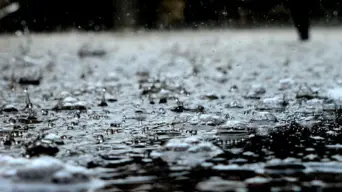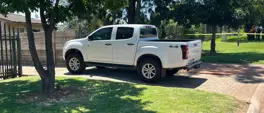Above-normal rainfall ahead: Johannesburg braces for another wet Summer
Guest contributor
29 October 2025 | 7:11The South African Weather Service (SAWS) has warned that this summer could bring above-normal rainfall across Gauteng.

An image of rainfall. Picture: Pexels
The rainy season has arrived in Johannesburg, bringing with it both relief from the dry winter and renewed fears of flooding in a city still recovering from the devastation of the storms earlier this year.
The South African Weather Service (SAWS) has warned that this summer could bring above-normal rainfall across Gauteng.
In March, heavy downpours swept through parts of Johannesburg, submerging roads, washing away informal structures and leaving several families displaced. Emergency teams worked around the clock as rivers burst their banks, drainage systems failed and low-lying neighbourhoods like Alexandra, Soweto, and Diepsloot bore the brunt of the storm.
Speaking to Our City News, SAWS forecaster Lehlogonolo Thobela said: “The latest seasonal outlook predicts wetter-than-usual conditions stretching from spring into early summer, a trend driven partly by a developing La Niña weather pattern that typically brings higher rainfall to the country’s interior.”
Thobela added that: “The seasonal forecast outlook predicts above normal rain for at least spring into early summer for Gauteng, with Johannesburg included.”
The risk of heavy thunderstorms and flash floods, said Thobela, will intensify between November and February, traditionally the peak of the rainy season.
For residents of Johannesburg, where poor drainage, litter-choked stormwater systems and rapid urbanisation have turned heavy rains into recurring disasters, the forecast is both familiar and alarming. The memory of the March floods, when sections of the M1 highway were submerged and emergency crews rescued motorists trapped in rising water, remains fresh.
SAWS said there is moderate to high confidence in the current forecast models while noting that the seasonal forecasts reflect probabilities rather than guarantees.
The agency is urging residents to prepare early, rather than waiting for flood warnings once storms begin.
Among its recommendations are clearing gutters and stormwater channels, securing valuables and electronics above ground level and ensuring households have an emergency plan in place.
For businesses, SAWS advises regular inspection of drainage systems, reviewing insurance coverage for water damage and developing continuity plans for staff safety. It also urged the public to avoid flooded roads, warning that most flood-related fatalities occur when motorists attempt to drive through moving water.
“Do not attempt to drive or walk through flooded roads or underpasses, most flood-related incidents happen in vehicles,” the SAWS cautioned.
The Gauteng Department of Cooperative Governance and Traditional Affairs (COGTA) says it has stepped up its readiness to manage flood risks this season. The province has implemented a series of measures through the Provincial Disaster Management Centre (PDMC) to monitor weather patterns, enhance early warning systems, and coordinate emergency responses across municipalities.
Speaking to OCN, MEC for COGTA, Mzi Khumalo, said lessons from previous disasters have shaped a more proactive and coordinated approach.
“Experience has highlighted the importance of proactive disaster preparedness. This season, the province is prioritising stronger community education and awareness programmes to ensure people understand impact-based alerts. We have enhanced our readiness to interpret forecasts, act on warnings, and mobilise an effective response.”
A key focus this year is the maintenance of drainage and stormwater infrastructure, which has been identified as one of Johannesburg’s greatest vulnerabilities.
Khumalo said municipalities have been directed to integrate stormwater maintenance into their Integrated Development Plans (IDPs).
To support these efforts, the province has set aside R7 million in the current financial year for disaster response and relief operations, covering floods, fires and other emergencies.
The provincial government is also collaborating with the Department of Human Settlements to address the vulnerability of communities living in informal settlements located along riverbanks and floodplains.
Despite these measures, environmental experts and urban planners warn that the City’s infrastructure remains under strain. Without consistent maintenance and community cooperation, they said that no amount of planning could fully prevent flood damage.
For residents like those in Klipspruit West and Alexandra, areas repeatedly hit by flooding, government pledges offer cautious reassurance. - By Mandisa Ndlovu
- This story is produced by Our City News, a non-profit newsroom that serves the people of Johannesburg.
Get the whole picture 💡
Take a look at the topic timeline for all related articles.

















